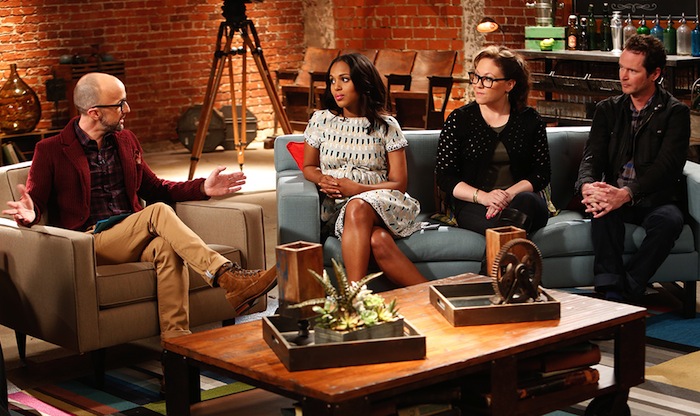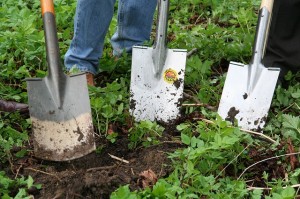
Developing a Writing Community
When developing a writing community for yourself, it is most important to remember that it takes great relationships with other people to build that network. Here I will explore a few ways that I found myself communing with other writers that can work in multiple fields of interest.
I started writing seriously relatively early and have been an autodidact most of my life. I never really had a group of peers with whom I shared work, ideas, and a passion for words until I graduated from college. When I joined a writing community I did it with intensity not just for my own work but for the work of other people. There is something that opens inside of us when we dedicate time and attention to the work of people with whom we are close.
In many ways you can say I jumped right in, offering my time to read other people’s poems and give suggestions, even when I really did not have the experience to do so. The people whom I helped, however, understood something I hadn’t yet learned: practicing taking care of other people’s work is how we learn the skills to better ourselves as critics and writers. They trusted my eye, as novice as it was, because it gave them another perspective into their own work. What has been fascinating to me is how much I’ve learned from working with other writers whose work habits rubbed off on me. I became a better writer because the people around me were better writers than me.
The idea of a writing community begins with you and radiates outward. What I mean is this: I constantly edit poems, chapbooks, and full-length manuscripts for other people. When there is an open call for submitting work I send that open call to folks who I think would be interested. I work on the journal Vinyl Poetry as poetry editor because I love exposing talented writers to other writers and non-writers. When there is a job position open and I know someone who would be a good fit, I share that position with them. I do private 1-on-1 tutorials with folks who just need a little push that their older mentors were not willing or able to do. I spend just as much time on other people’s writing as I do on my own. That’s the truth of it.
Developing a Writing Community: Preparation
Think of your relationship with people as a garden requiring three steps: build self, build with others, and maintain what is built.
1) You have to tend the soil, weed it, stir it, and more in preparation for the seeds. I consider this the work you do on yourself before you begin working with other people. How are you building yourself as a person with a friendly but professional demeanor so that people know you are serious about what you do? How frequently do you practice your craft? With what intensity? When it gets difficult how do you push through to get to the other side? How do you tend to yourself?
2) Next, you have to plant the seed. You have to dig in deep enough to secure the seed, to protect it from predators, and to give it plenty of opportunity to root itself into the earth without struggling to break through the top. I consider this the work you do when developing relationships with other people. You have to plant that seed the right way first before anything can bud. Are you building rapport with people? Are you giving your best face all the time? Are you committed to spending time in helping that relationship grow? Are you on time for meetings? Are you honest with what you can and cannot do for others? When something simply will not grow do you step away from the situation in order to protect the level of attention you give to your other seeds?
3.) Finally, you have to cultivate what has grown, nurture the garden, clip the dead leaves, and continuously weed out the bad plants. Now that you’ve initiated contact with people, it’s time to invest in what has grown and make sure it stays healthy. Keep in contact with those who have shared their time and experience with you. Write “thank you” letters when you can and share their work with other people. Make sure these relationships stay positive and weed out relationships that are not. It is always a good idea to try to meet people face-to-face whenever possible, building a connection that shows dedication and loyalty to what you all share. Also, take time to nurture yourself and use what is learned in these shared experiences to become better at what you do and to become a better person.
These are just my experiences and I’m sure there is more to add but for now these three “gardening” tips should be a great start to investigate how and where you spend your energies when networking with other writers. Remember to work on yourself first, then work to meet other people and show your interest, and finally to maintain those relationships you’ve built!
Resources
9 Habits of People Who Build Extraordinary Relationships – This looks into what I call the social level (talking with business partners, colleagues, large groups of stranger) and personal level (talking with friends, family, close associates, neighbors) of communication. A really concise resource worth looking into when trying to build something real with people.
The Good, The Bad, The Ugly, or How To Choose a Writers Group – The name says it all. Does your writers group cater to your needs? Is it within a focus that you are interested in? How does critique happen? Do the members get along? These and more questions are introduced as food for thought when looking for a healthy environment to get feedback for your writing.
Phillip
Glappitnova unites influencers and talent from different industries through storytelling, performances, classes, and events for one crazy 8 day experience in Chicago.
comments
 AI Will Impact 400 Million Jobs by 2030 So Let’s Prepare
AI Will Impact 400 Million Jobs by 2030 So Let’s Prepare
 From Redmoon to Newmoon Theater Announcing Alex Balestrieri on The Global Committee
From Redmoon to Newmoon Theater Announcing Alex Balestrieri on The Global Committee
 Announcing Wingsuiter and Curator Kody Madro on The Global Committee
Announcing Wingsuiter and Curator Kody Madro on The Global Committee
 Glappitnova 2.0
Glappitnova 2.0
 Announcing Creative and Engineer Josh Onwordi On The Global Committee
Announcing Creative and Engineer Josh Onwordi On The Global Committee
 Announcing Global Healthcare Executive Samantha Thaver on the Glappitnova Global Committee
Announcing Global Healthcare Executive Samantha Thaver on the Glappitnova Global Committee
 Announcing Illini Track Star Turned Entrepreneur Jonathan Wells On The Global Committee
Announcing Illini Track Star Turned Entrepreneur Jonathan Wells On The Global Committee
 Announcing Ella McCann On The Glappitnova Global Committee
Announcing Ella McCann On The Glappitnova Global Committee
 Announcing Cultural Executive Andrew Harris On The Global Committee
Announcing Cultural Executive Andrew Harris On The Global Committee
 Announcing Matt Carney Of Root Tulsa On The Glappitnova Committee
Announcing Matt Carney Of Root Tulsa On The Glappitnova Committee
 Announcing Jerica D. Wortham Tulsa On The Global Committee
Announcing Jerica D. Wortham Tulsa On The Global Committee
 Announcing Michael Grogan Tulsa On The Glappitnova Global Committee
Announcing Michael Grogan Tulsa On The Glappitnova Global Committee
 Community Development Tips For Millennial Audiences, Wanna Come?
Community Development Tips For Millennial Audiences, Wanna Come?
 The Advertising Industry Is Working Scared
The Advertising Industry Is Working Scared
 Announcing Our New Platform, Foonova
Announcing Our New Platform, Foonova
